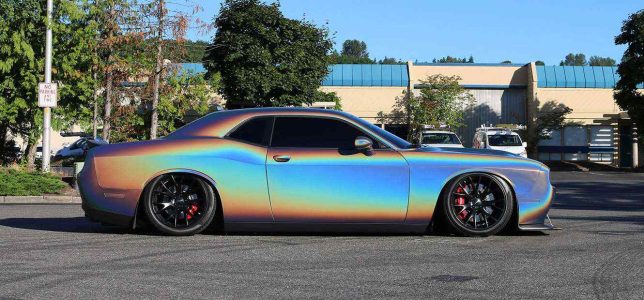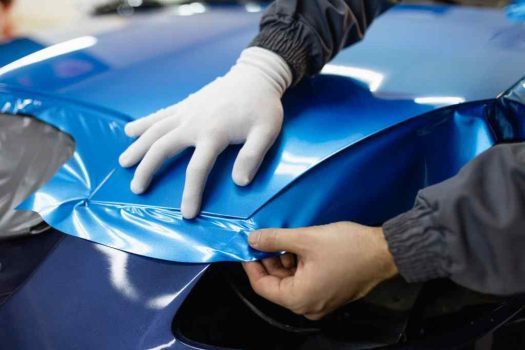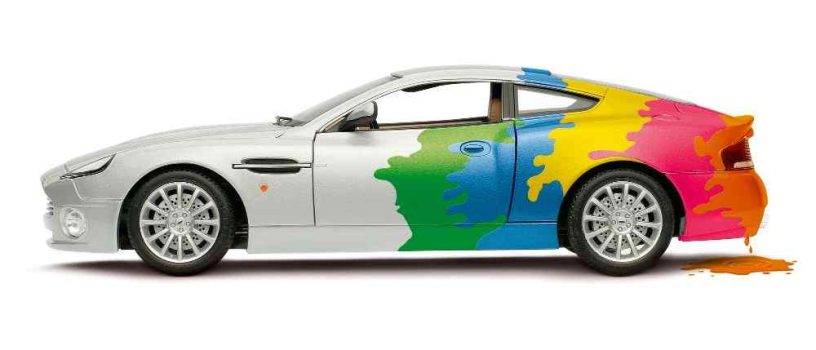The cost of wrapping varies greatly depending on various factors, such as vehicle size and complexity, the quality and type of wrap material, and the region where you are getting the wrap done. On average, you can expect to pay the following for a full car wrap.
- Economy vinyl wrap: $1,000 to $2,500
- Standard vinyl wrap: $2,500 to $5,000
- Premium vinyl wrap: $5,000 to $10,000+
These are rough estimates and can vary based on the specifics of your project. Custom graphics, unique finishes, or special colors can add to the cost. A partial wrap, like a roof or hood wrap, typically costs less.

Choosing a reputable and experienced installer, as the quality of the installation, can significantly impact the cost, final appearance, and durability of the wrap. Be sure to get multiple quotes from local wrap shops to find the best deal and quality for your needs.
Car Wrapping Cost Estimates for Various Car Types
- Family sedan: $2,000 – $3,500
- Compact car: $1,500 – $2,500
- Coupe: $2,000 – $3,500
- Compact crossover: $2,500 – $3,800
- SUV: $3,000 – $4,500
- Jeep: $2,500 – $4,000
- Truck: $3,000 – $5,000
- Commercial vehicle: $2,500 – $5,000 (depending on the size and complexity)
- Luxury cars: $3,000 – $6,000
Factors that Affect Car Wrapping Cost
- Vehicle size and complexity: Larger vehicles or those with more intricate curves and shapes require more material and labor, increasing the overall cost.
- Material and quality: High-quality vinyl wrap materials, such as those from 3M or Avery Dennison, tend to be more expensive. Specialty finishes, like chrome or carbon fiber, can also increase the cost.
- Design and customization: Custom designs, graphics, or branding elements add complexity to the job, requiring more time and effort from the installer, which can raise the price.
- Geographic location: Labor rates and market conditions vary by region, so the cost of wrapping a car may differ depending on where the service is performed.
- Installation: The skill and experience of the installer can affect the cost, as more experienced professionals may charge higher rates but provide better results.
- Partial or full wrap: A partial wrap covering specific areas of the vehicle will be less expensive than a full wrap that covers the entire car.
- Bodywork preparation: The amount of bodywork necessary to make the car good enough to wrap, such as repairing dents, scratches, or rust, can increase the cost as it involves additional labor and materials.

Cost For Car Wrap According To The Types Of Finishes
- Metallic: It has a reflective shine and bright colors. Prices range from $10 for 5ft x 1ft to $200 for a full car wrap roll (50ft x 5ft).
- Carbon: It features a textured carbon layer look. Prices range from $13 for 5ft x 1.5ft to $250 for a full car wrap roll (50ft x 5ft).
- Gloss: This finish resembles a typical manufacturer’s paint job with a reflective shine. It costs $4 per square ft or $60 for 25 sq/ft (5ft x 5ft).
- Matte: It absorbs light and has little reflective shine. Prices range from $10 for 1ft x 5ft to $300 for a full car wrap roll (50ft x 5ft).
- Satin: This finish offers a reflective shine between gloss and matte. Prices range from $17 for 5 sq/ft (5ft x 1ft) to $295 for 125 sq/ft (5ft x 25ft).
Please note that these prices are just an average and may vary depending on factors like brand value, warranty, and material quality.

Can you DIY a Car Wrap? Is it Cheaper?
Yes, you can DIY a car wrap, which can be cheaper than hiring a professional installer. The cost per square foot for a car wrap ranges from $5 to $15. Installation charges, depending on the car’s type and condition, can add $3 to $4 per square foot, up to $19 per square foot.
To DIY a car wrap, you’ll need the following tools.
- A micro-squeegee designed for vinyl applications)
- Heat gun
- Surface Cleaner
- Microfiber Cloth
- Cutting Tape
- Blade
- Tweezers
- Special blade (a safety cutter for vinyl)
- Tape Measure
- Masking Tape
- Gloves
- Spray Bottle
- Clay Bar
However, it’s crucial to consider whether you can wrap the car correctly. Saving money may not be worth it if you get poor results or need a professional to fix the wrap. Evaluate your skill level and weigh the potential risks before attempting a DIY car wrap.
Is it Cheaper to Wrap or Paint a Car? Which Lasts Longer?
Wrapping a car is generally cheaper than a high-quality paint job. A full vehicle wrap ranges from $1,500 to $6,000, depending on the car size and wrap quality. On the other hand, a professional paint job can cost between $3,000 and $10,000, depending on the quality of the paint, prep work, and labor involved. However, a cheap paint job can cost as low as $1,000 but may lack durability and finish quality. Ultimately, the choice depends on your budget and desired outcome.
The longevity of both car wraps and paint jobs depends on the quality of materials used, the expertise of the installer or painter, and how well the car is maintained.
When properly cared for, a high-quality paint job can last 10 years or more. However, cheaper paint jobs may only last a few years before showing signs of wear or fading.

A quality car wrap typically lasts 5 to 7 years, depending on the material and the environmental conditions it’s exposed to. Over time, wraps may start to peel or fade, but they generally require less maintenance than paint jobs.
In conclusion, a high-quality paint job may last longer than a car wrap, but both options have their advantages and maintenance requirements.
How much does it cost to remove a Car Wrap?
A DIY wrap removal costs nothing but only your time and tools like a heat gun (hair dryer also works okay), plastic scrapper, adhesive remover, and microfiber cloth. On the contrary, a professional wrap removal may cost from $500 to $2,000, depending on the vehicle’s size, wrap material, and the complexity of the removal process.